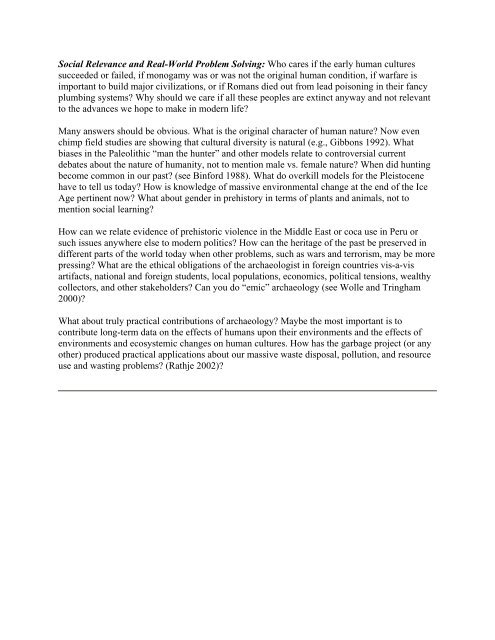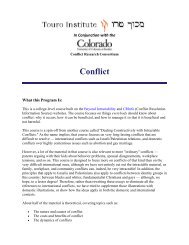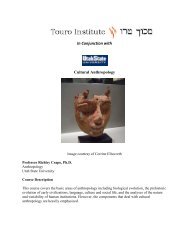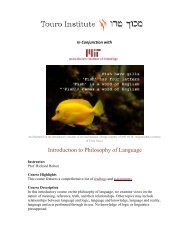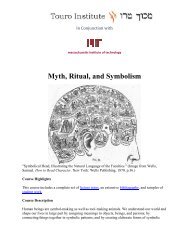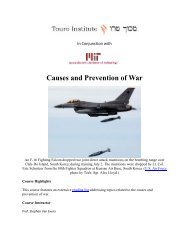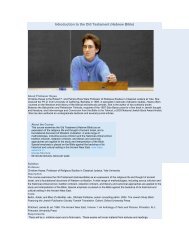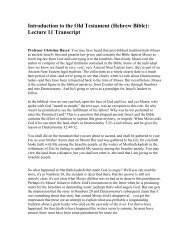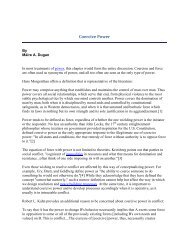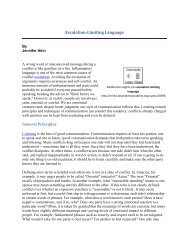INTRODUCTION TO ARCHAEOLOGY Nancy White - Touro Institute
INTRODUCTION TO ARCHAEOLOGY Nancy White - Touro Institute
INTRODUCTION TO ARCHAEOLOGY Nancy White - Touro Institute
Create successful ePaper yourself
Turn your PDF publications into a flip-book with our unique Google optimized e-Paper software.
Social Relevance and Real-World Problem Solving: Who cares if the early human cultures<br />
succeeded or failed, if monogamy was or was not the original human condition, if warfare is<br />
important to build major civilizations, or if Romans died out from lead poisoning in their fancy<br />
plumbing systems? Why should we care if all these peoples are extinct anyway and not relevant<br />
to the advances we hope to make in modern life?<br />
Many answers should be obvious. What is the original character of human nature? Now even<br />
chimp field studies are showing that cultural diversity is natural (e.g., Gibbons 1992). What<br />
biases in the Paleolithic “man the hunter” and other models relate to controversial current<br />
debates about the nature of humanity, not to mention male vs. female nature? When did hunting<br />
become common in our past? (see Binford 1988). What do overkill models for the Pleistocene<br />
have to tell us today? How is knowledge of massive environmental change at the end of the Ice<br />
Age pertinent now? What about gender in prehistory in terms of plants and animals, not to<br />
mention social learning?<br />
How can we relate evidence of prehistoric violence in the Middle East or coca use in Peru or<br />
such issues anywhere else to modern politics? How can the heritage of the past be preserved in<br />
different parts of the world today when other problems, such as wars and terrorism, may be more<br />
pressing? What are the ethical obligations of the archaeologist in foreign countries vis-a-vis<br />
artifacts, national and foreign students, local populations, economics, political tensions, wealthy<br />
collectors, and other stakeholders? Can you do “emic” archaeology (see Wolle and Tringham<br />
2000)?<br />
What about truly practical contributions of archaeology? Maybe the most important is to<br />
contribute long-term data on the effects of humans upon their environments and the effects of<br />
environments and ecosystemic changes on human cultures. How has the garbage project (or any<br />
other) produced practical applications about our massive waste disposal, pollution, and resource<br />
use and wasting problems? (Rathje 2002)?


